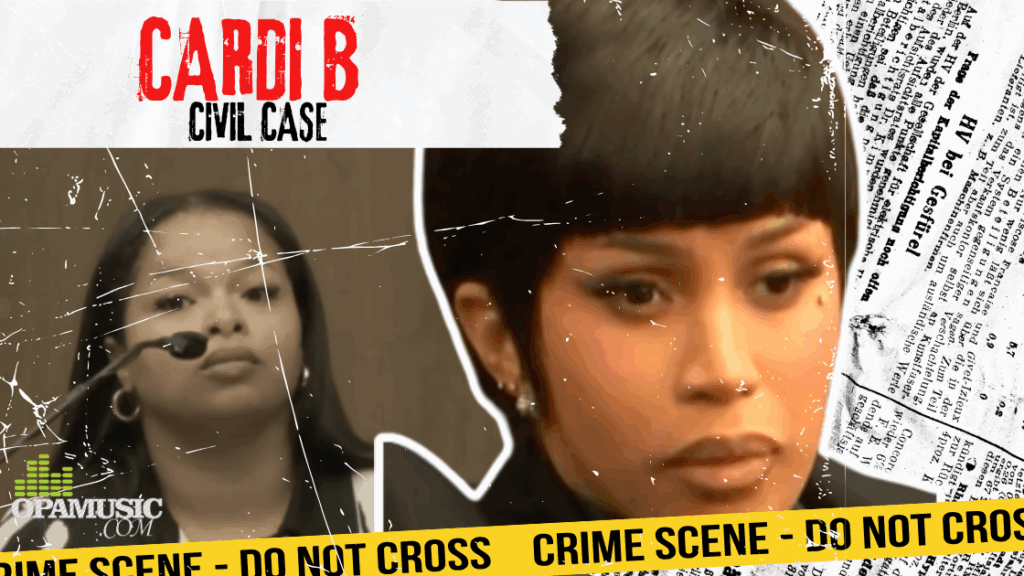Cardi B is back in the courtroom, this time facing a civil lawsuit over allegations that she assaulted a former security guard during a heated encounter in 2018. The trial began this week in Los Angeles, where jurors are now weighing the testimony of the plaintiff, Emani Ellis, against the defense put forward by the superstar rapper.
The case stems from an incident that took place on February 24, 2018, inside a Beverly Hills medical building. Ellis, then working as a security guard, testified that she recognized Cardi B and casually remarked, “Wow, that’s Cardi B.” According to Ellis, that simple statement provoked a violent reaction. She told the jury that Cardi B verbally attacked her, hurled profanities, and used slurs. Most notably, Ellis claims the rapper spit on her and slashed her cheek with her long fingernails, leaving injuries that later required plastic surgery.

Ellis described the altercation as “super traumatizing” and said it left her with ongoing psychological struggles, including anxiety, depression, insomnia, and PTSD. She claims the injuries from the alleged attack forced her to undergo plastic surgery, but she admitted in court that she had no photographs of her wounds prior to the surgery. When pressed, Ellis explained she simply forgot to take pictures, a point the defense argued was a significant red flag. The defense highlighted that in cases of alleged assault, particularly those resulting in surgery, documentation of the injuries would normally be expected.
Ellis also testified that the incident forced her to quit her job as a security guard, compounding her mental health struggles and financial hardship. However, Cardi B’s legal team disputed that claim, producing evidence that Ellis was not only fired from her position but also wrote a letter of apology to her former employer. In the letter, Ellis acknowledged her conduct and the reasons for her dismissal, undercutting her narrative that she resigned due to the trauma.
Cardi B’s attorneys argue that Ellis’s account contains inconsistencies and exaggerations. They maintain that the rapper, who was four months pregnant at the time and had not yet announced her pregnancy, felt threatened and was acting out of fear for her unborn child. They insist there was no physical assault and claim Ellis’s testimony has shifted over time.
Before the trial began, Cardi B’s legal team secured several important rulings in her favor. The judge ordered that the case would be heard in two phases, with financial details introduced only if she is found liable in the first phase. The court also barred references to her past as an exotic dancer or other unrelated controversies, calling them prejudicial and irrelevant.
During testimony, Ellis faced questions about the lack of camera footage from the elevator where part of the altercation allegedly took place, as well as her failure to provide photos of her injuries. Despite these challenges, she stood by her claims, insisting the encounter caused lasting damage.
Outside the courtroom, Cardi B’s appearance also made headlines. Sporting a sharp pixie-cut wig, her look quickly went viral, with memes comparing her to a mix of pop culture figures. While the moment generated laughter online, it also underscored how celebrity trials often straddle the line between serious legal matters and viral spectacle.
The lawsuit accuses Cardi B of assault, battery, intentional infliction of emotional distress, negligence, and false imprisonment. If the jury rules against her in the first phase, the proceedings will move to determining how much she may have to pay in damages.
For Ellis, the trial is about accountability for what she calls an unprovoked and humiliating attack. For Cardi B, it is another high-profile legal challenge at a time when every move in and out of court is scrutinized by the public.

